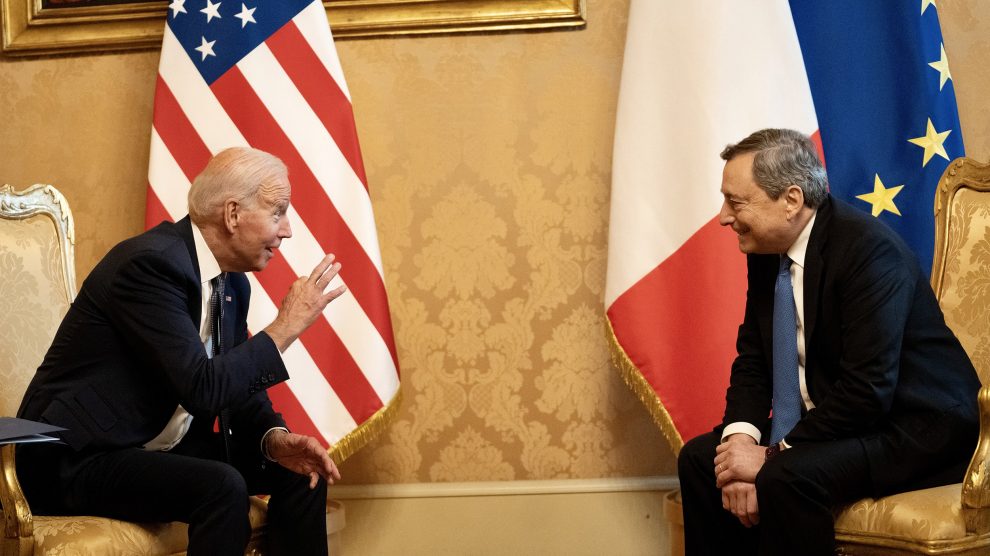Mario Draghi is in Washington, DC. And although he’s proven a stalwart Atlanticist, time and again, he’s also conscious that a good chunk of Italians is exhibiting some pro-Russia tendencies.
- The Kremlin’s talking points, which include a push to stop sending weapons to Ukraine, have found their way into the Italian infosphere.
Still, the allies are united. Reached by Decode39, Ian Bremmer – President of the Eurasia Group – noted that US officials have generally produced more aggressive statements than the Italian government. But beneath the surface, there’s unity across the board.
- “On the fundamentals, Rome and Washington are one hundred per cent on the same frequency. [Mr] Draghi is an extraordinarily strong leader and has excellent relations with [Mr] Biden,” he told us.
Energy matters. Truth is, the EU is also facing a debilitating fossil fuel dependency on the Kremlin – and that’s the crux, argued the expert.
- “The fate of the conflict depends on how quickly European countries will diversify their gas imports. Right now, they are pouring a huge amount of money into the coffers of the Russian war.”
- Thus, “it’s normal” that the Italian government tries to combine the shift away from Russian gas with the economic interests at stake. It would also be “ideal” to find a unified position among NATO countries.
“As far as weapons are concerned,” he concluded, “I do not think it is so essential that Italy sends heavy and offensive war material.” Because it’s more important for Italy to participate, as it does, in NATO missions, and keep providing humanitarian support to Kyiv.
Allies for the long run. As Giampiero Massolo, President of ISPI, pointed out, foreign policy waltz turns are not uncommon across Italian governments. However, “Italy has always shown solidarity and loyalty to the alliances and the West every time it has been called upon.”
- While it is true that Russian propaganda pervades the country, he told Decode39, and while there are cultural problems, the entire organism “remains healthy.”
- “Italy is a sceptical country by culture, a bit cynical, a bit pacifist in manner, all in all not very attentive to what happens outside its borders. And often governments have not had the strength and determination to say things as they are.”
- Now, however, the government is telling citizens “that there are choices to be made. That freedom comes at a price; that security is not free. That there are aggressors, and against them, we must fight. With this government, Mario Draghi comes to Washington.”
Diplomacy, diplomacy. Federiga Bindi, who wrote two books on European and American foreign policy with the Brookings Institute, believes Mr Draghi must “absolutely bring a message of peace and explain that the cost and the risk [of a prolonged conflict] are too high for Europe and the world.”
- “For the past 20 years, every single time the United States met with Italy bilaterally, it always asked the same question: ‘When will you stop importing gas from Russia?’”, she told Decode39.
- Washington never accepted Italy’s energy dependency on Russia, she said, adding that the issue has always stifled its relations with both Italy and Germany.
- She also argued that Mr Draghi will be hearing that very same question during his visit. To which he can finally answer: “we are working on it.”




